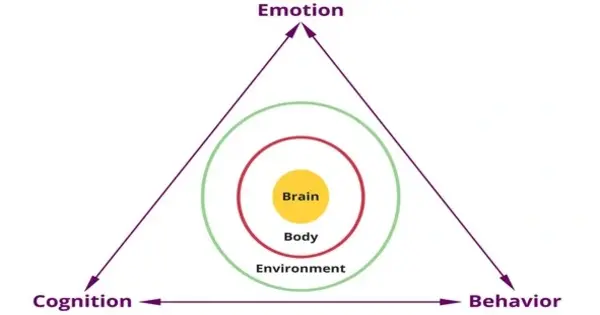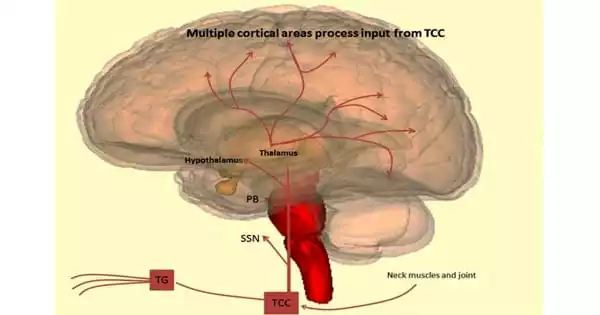Embodied cognition is a theoretical paradigm in cognitive science that proposes that the mind is impacted not just by the brain, but also by the body and its interactions with its surroundings. It is the idea that many aspects of cognition are influenced by the organism’s state and abilities. This concept proposes that cognitive processes are profoundly embedded in an organism’s physical and social experiences, rather than being solely algorithmic or abstract.
Cognitive aspects include a broad range of cognitive activities such as perception biases, memory recall, comprehension, and high-level mental constructs (such as meaning attribution and categories), as well as performance on various cognitive tasks (reasoning or judgment). The bodily aspects include the motor system, the perceptual system, bodily interactions with the environment (situatedness), and world assumptions that contribute to the functional organization of an organism’s brain and body.
The central concept of embodied cognition is that cognition is shaped not just by internal mental representations and processes, but also by the body’s sensory-motor experiences, emotions, and interactions with its surroundings. In other words, the body and its behaviors have a significant impact on molding and restricting cognitive processes.
The embodied mind thesis challenges other theories, such as cognitivism, computationalism, and Cartesian dualism. It is closely related to the extended mind thesis, situated cognition, and enactivism. The modern version depends on understandings drawn from up-to-date research in psychology, linguistics, cognitive science, dynamical systems, artificial intelligence, robotics, animal cognition, plant cognition, and neurobiology.
Embodied cognition has been applied to various domains within cognitive science, including perception, language, memory, problem-solving, and social cognition. For example, studies have shown that bodily sensations and movements can influence how we perceive and understand concepts, how we learn and remember information, and even how we reason about abstract concepts.
One well-known notion in embodied cognition is “embodied simulation,” which proposes that we understand and represent the actions, feelings, and experiences of others by replicating them in our own body. This concept has had a significant impact on research into empathy, social cognition, and theory of mind.
Overall, embodied cognition offers a comprehensive view of cognition, emphasizing the interdependence of the mind, body, and environment. This framework has resulted in new ideas and methods to cognitive research, with ramifications for domains such as artificial intelligence, robotics, psychology, and philosophy.
















